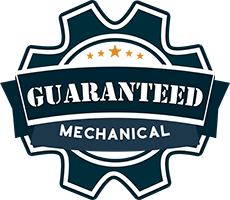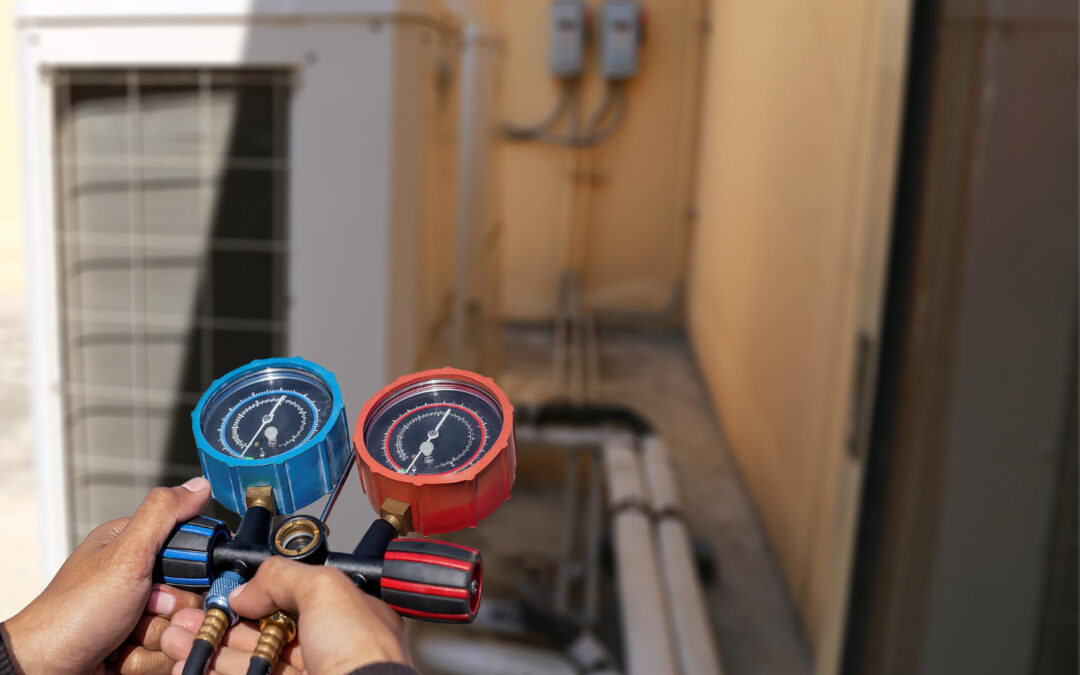When your heat pump stops doing its job, one common culprit is the compressor. This part acts like the heart of the system. It pushes refrigerant through the unit to deliver heated or cooled air to your home. If the compressor isn’t working right, it throws the entire operation off balance. In many cases, the unit may still run, but it won’t be able to keep your home comfortable the way it should.
In Aurora, the shift from summer to fall hits right around early September. Homeowners often start relying on their heat pumps again as the nights cool down. If you notice something off with your system like strange sounds, uneven temperatures, or an energy bill that spikes it could be more than just a seasonal adjustment. It might be a warning sign that your compressor is starting to fail.
Warning Signs of a Failing Heat Pump Compressor
When a heat pump compressor starts to go bad, it will usually give off some warning signs. Ignoring these signals can turn what started as a minor problem into a system-wide failure. The sooner you recognize the symptoms, the better chance you have of preventing bigger and more expensive damage.
Keep an eye out for the following common signs:
– Strange noises: Grinding, humming, clanking, or hissing sounds are usually signs that something is going wrong inside the system. These noises often come from worn or broken parts inside the compressor itself.
– Poor airflow: If the air coming from the vents feels weak or does not seem to heat or cool your home like it used to, there is a chance the compressor is struggling or not operating at all.
– Short cycling: The system might turn on and off too often without completing a full heating or cooling cycle. This leads to inconsistent temperatures, added stress on the system, and higher utility bills.
– Increased energy usage: A compressor that is running inefficiently drains more electricity. If you notice a sudden spike in your energy bill with no other change, it may be time to take a closer look at your heat pump.
Here is an example: A homeowner in Aurora reported that their house kept feeling warm even though the thermostat was set low. The system was constantly cycling but could not keep the room cool. Our professionals later found the issue was a failing compressor that could not maintain pressure in the refrigerant line, which disrupted the entire cooling process.
Recognizing these symptoms early can help you avoid emergency repairs when the weather gets even colder.
Main Causes of Compressor Problems
Understanding why compressors fail can make a big difference when it comes to spotting problems before they get worse. While some issues come from normal wear and tear, others can result from skipped maintenance or electrical issues that go unnoticed.
Here are the most common reasons compressors start to break down:
1. Lack of maintenance
Over time, dust and debris can build up in your system. When filters are not replaced and coils are not cleaned, the compressor has to work harder to push air through the unit. This extra strain can shorten its lifespan and cause it to fail early.
2. Refrigerant issues
Low refrigerant levels usually come from leaks. If your system runs too long without enough refrigerant, it puts pressure on the compressor, which may eventually cause it to overheat or break. Too much refrigerant can create high-pressure levels that stress the system.
3. Electrical problems
Faulty wiring, power surges, or damaged contacts can stop the compressor from running properly. Electrical problems often go unnoticed because they do not always leave visible signs, but they can quickly damage the compressor beyond repair.
4. Dirty coils or blockages
If air cannot flow through the system the way it should, the whole heat pump, especially the compressor, starts to struggle. Blocked condenser coils, dirty filters, or internal clogging create added pressure that leads to motor failure.
Most compressor problems do not happen out of the blue. They build up slowly. Regular inspections and simple maintenance steps can catch these issues before they turn into full heat pump failure. For Aurora homeowners seeing early signs of compressor trouble, holding off too long can make the system harder and more expensive to fix.
The Importance of Calling Trained Professionals for Repairs
When a compressor starts showing signs of failure, putting off repairs often leads to larger system breakdowns. Waiting too long can turn a quick fix into a major replacement. Even if the heat pump still runs, it may be working harder than it should, which puts unnecessary load on the motor and other parts. This causes more wear and increases the chances of additional parts breaking down too.
Trying to manage compressor issues without the right tools or expertise usually does more harm than good. Heat pump compressors are complex, and they play a major part in how the whole HVAC system works. One misstep, like adding too much refrigerant or bypassing a safety control, can make the situation worse or even lead to complete system failure. That is why reaching out to trained professionals is the better choice every time.
Our technicians know what to look for and how to spot problems before they require full compressor replacements. They use specialized instruments to check pressures, electrical loads, refrigerant levels, and mechanical operation. That means you will get accurate answers, not guesswork. A simple repair done the right way today can help you avoid being stuck without heat during colder nights in Aurora.
How Routine Maintenance Extends System Life
Many common compressor problems can be avoided with regular service and system checks. A few easy habits go a long way when it comes to keeping your heat pump in good shape.
Here are a few practical tips for homeowners in Aurora:
– Change the air filter every 1 to 2 months to keep airflow moving properly
– Keep the outdoor unit free of leaves, grass, and debris
– Check the thermostat settings and schedule seasonal adjustments
– Listen for any changes in how the system sounds during startup or run cycles
– Book annual maintenance inspections with trained professionals
Most problems that lead to compressor failure develop slowly. A routine system check can identify refrigerant leaks, clogged coils, or electrical issues before they snowball into serious damage. A yearly tune-up before fall hits is a good way to make sure your heat pump will hold up as temperatures start to drop.
Skipping maintenance to save money may seem like a good idea at the time, but delayed service often causes bigger expenses later. Sound operation does not just rely on one part doing its job. The whole HVAC system works together, and a failing compressor throws everything out of balance.
Protecting Your Comfort Throughout Aurora’s Cooler Months
Compressors are not something homeowners think about until something goes wrong. But once they stop working the way they should, it becomes clear how much they matter. From keeping rooms at the right temperature to controlling energy usage, heat pump compressors carry a lot of responsibility.
Identifying early signs and acting quickly can prevent sudden failures when you need your system the most. With summer winding down in Aurora, now is the time to check that everything is in working order. Whether it is through simple maintenance or professional repair, staying ahead of the issue will save you money and discomfort.
Ensuring your heat pump is in top shape heading into cooler weather makes all the difference in home comfort. Especially in a place like Aurora, where fall can bring wide temperature swings from one day to the next, you want reliable performance. Addressing compressor problems early keeps your home running smoothly and keeps you from facing headaches down the road.
Ensure your home’s comfort during Aurora’s cooler months by addressing compressor issues early. When you need reliable heat pump repair in Aurora, our professionals use straightforward methods to keep your HVAC system running smoothly. Guaranteed Mechanical is dedicated to preventing inconvenient breakdowns and ensuring efficient performance every season, so if you notice any irregularities, don’t wait to get help. For a quick estimate or to book a service visit, please contact us today.




Recent Comments